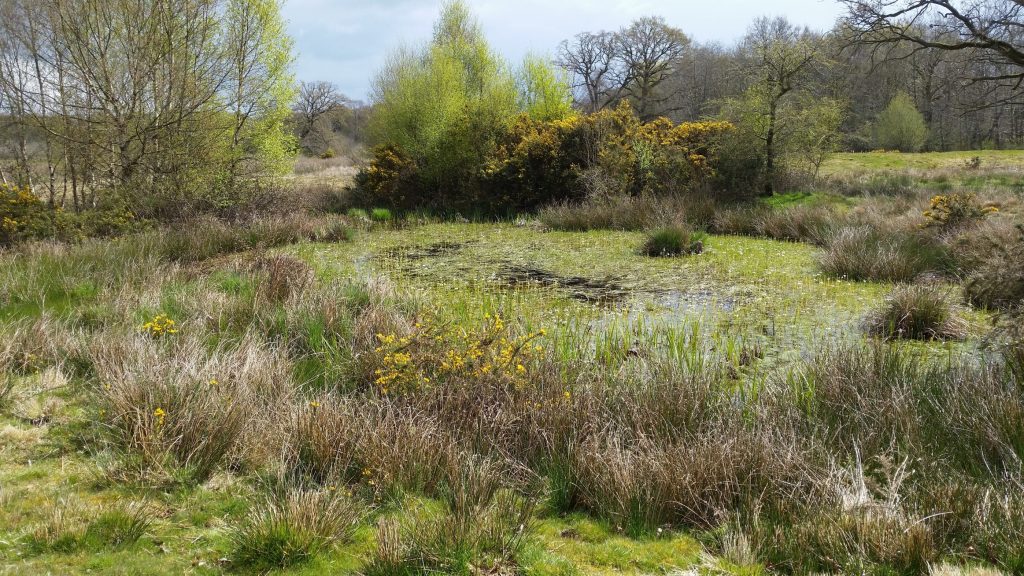Stow Bedon Common Update April 2019
19th April 2019
There’s been a lot going on at Stow Bedon Flagship Pond site. Here’s an update from Pete who has been involved with the site for several years
For the last year, Freshwater Habitats Trust has been quietly working away at Stow Bedon Common in the Norfolk Brecks. Funding from Biffa Award and Anglian Water has been helping us to implement part of a long-term project to protect this hidden freshwater gem.
Adjacent to Norfolk Wildlife Trust’s Thompson Common – a reserve celebrated for its freshwater heritage and incredible density of ponds – sits the Stow Bedon Fuel Allotment. This small but critically important place was somewhat overlooked by freshwater specialists in the past, perhaps due to its modest size, and its woodland-like appearance. Far more attention was paid to its more famous neighbour despite both sites being part of the same overall SSSI designation.
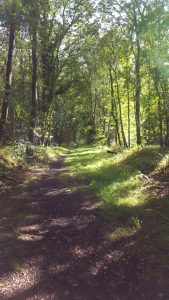
Historically, Stow Bedon Common would have played a significant part in the lives of local people, benefiting the Parish ‘poor’ who had a right to cut timber or ‘furze’ for fuel. Villagers would certainly have grazed their animals on the common too, helping to keep the site an open heath with just scattered mature trees. Today, the site is essentially a woodland. The sandy, acidic soils of this area, and a lack of grazing have resulted in the site now being dominated by secondary birch woodland. Amidst the tree cover however, are over 30 water filled depressions known as Pingos. These pools formed by the freezing and thawing of ground frost that took place some 10,000 years ago when Breckland was a tundra-like landscape. It is remarkable that they remain in our changed and degraded landscape. Many of the Breckland Pingos have been lost to the plough, or infilled to make space for agriculture or planted up for forestry.
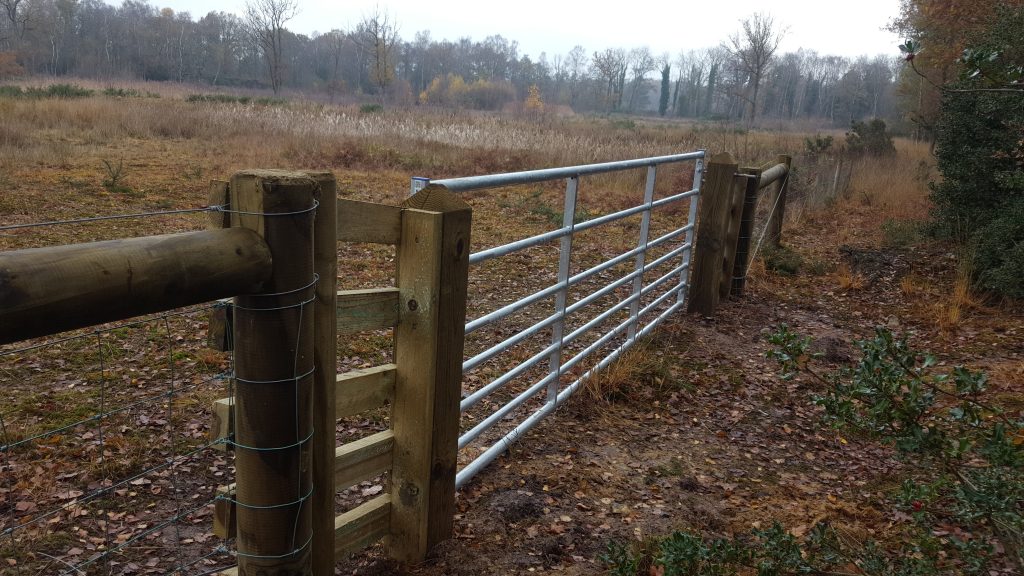
In 2015, Freshwater Habitats Trust included the Stow Bedon in the Flagship Ponds project – a project working to support some of England and Wales’s best pond sites. This project funded a detailed survey of the Stow Bedon Pingos that revealed a staggering diversity of wetland plants and animals. Many rare or uncommon species were recorded, including seven Red Data Book and four uncommon wetland plants, 18 invertebrates of conservation concern and several Priority species including Water Vole, Common Toad, Great Crested Newt and Tubular Water-dropwort. The site also hosts several ‘relict fen’ beetles, specialists restricted to ancient wetlands. Seriously impressive stuff!
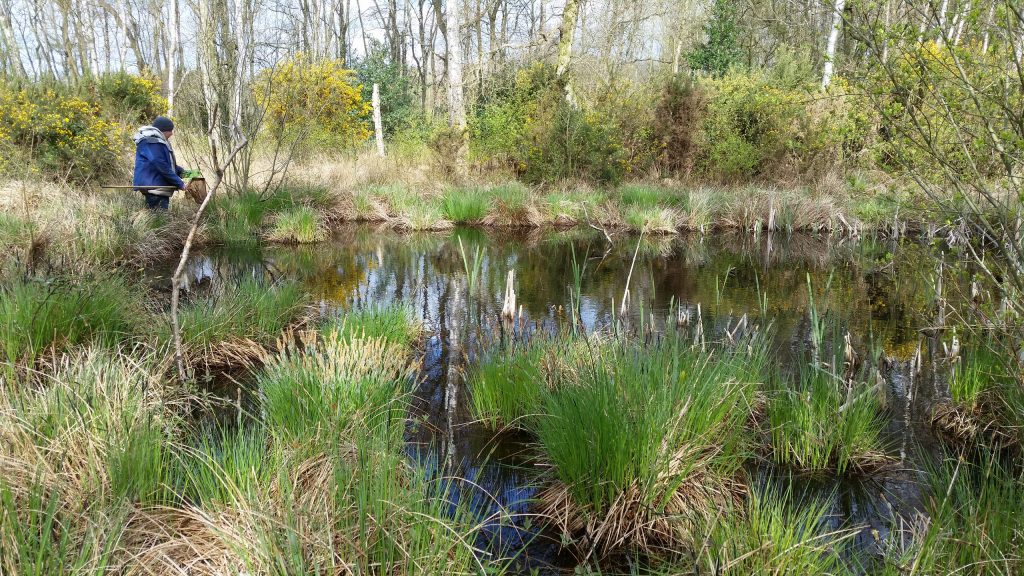
Fast forward to 2018, and we were able to use the results of this survey work to create a management plan with actions to protect the site for the long term. Having good data upon which to base management decisions has been critical for this project. Using the survey data, we drew together a detailed plan of tree management and scrub removal, a good proportion of which has been funded by Biffa Award. Ponds selected for management had a low diversity of wetland plants and animals, and were opened up by removing years of willow scrub growth.
Whilst in general, opening up recently wooded pingos is a good idea to encourage mossy margins to establish, one of the specialist species found on Stow Bedon Common thrives in more shaded ponds where competition is lower. The seasonal, temporary ponds on the fringes of the common are ideal for Pond Mud Snail (Omphiscola glabra). They can hunker down in the dry months, burying themselves deep in the pond base, waiting for water levels to refresh. When conditions are right, the snails thrive and can be prolific in their reproduction. Last year a single sweep of the net revealed 20 or more individuals amongst the leaf litter and decaying plant matter. Stow Bedon and adjacent Pingo sites, are a stronghold for this species in East Anglia – we know of just one other record in West Norfolk!
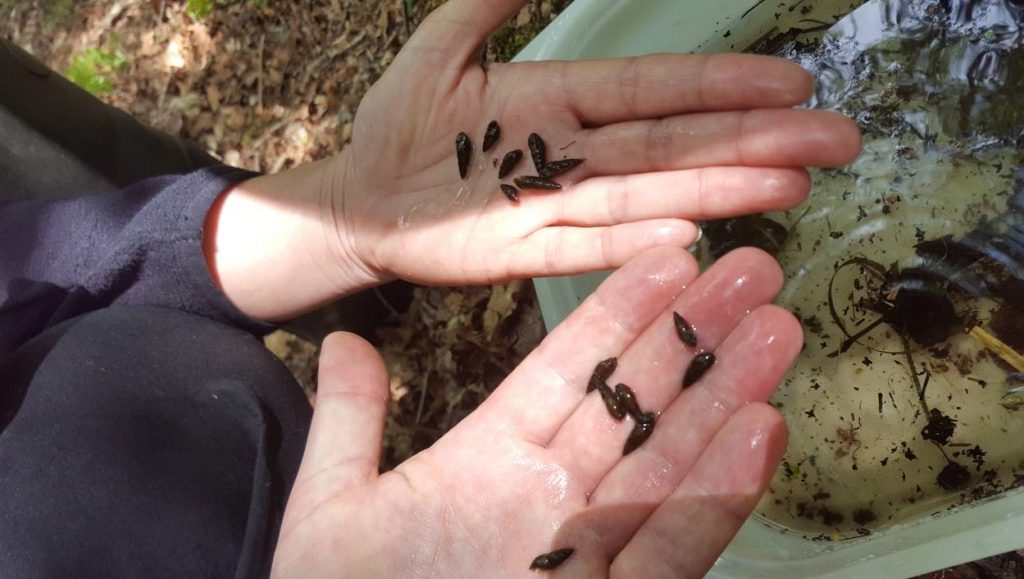
To sustain the tree management work, the ambition is to return grazing animals to the common.This would ensure the Pingos remain open and in balance. The Biffa Award funding has paid for the start of this work – the essential infrastructure to make grazing possible. Two km of high quality stock-proof fencing now surrounds the 2 compartments of the site, replacing the old fence which is thought to be over 150 years old! In the short-term, livestock from the adjacent Thompson Common will have access to Stow Bedon so pond edges can be lightly grazed once again.
Finally, we have installed an interpretation panel. People walking on the bridal way and footpath can now learn more about the site and its very special species.
This year we’ll be building on the success of the project so far. We’re reaching out further into the local community to establish a permanent group of volunteers to work alongside site owners, The Stow Bedon Fuel Allotment Charity. Our vision is to have a ‘Freshwater Friends’ group who can undertake species surveys, help with practical management and take ownership – all whilst maintaining the wild, undisturbed nature of this site.
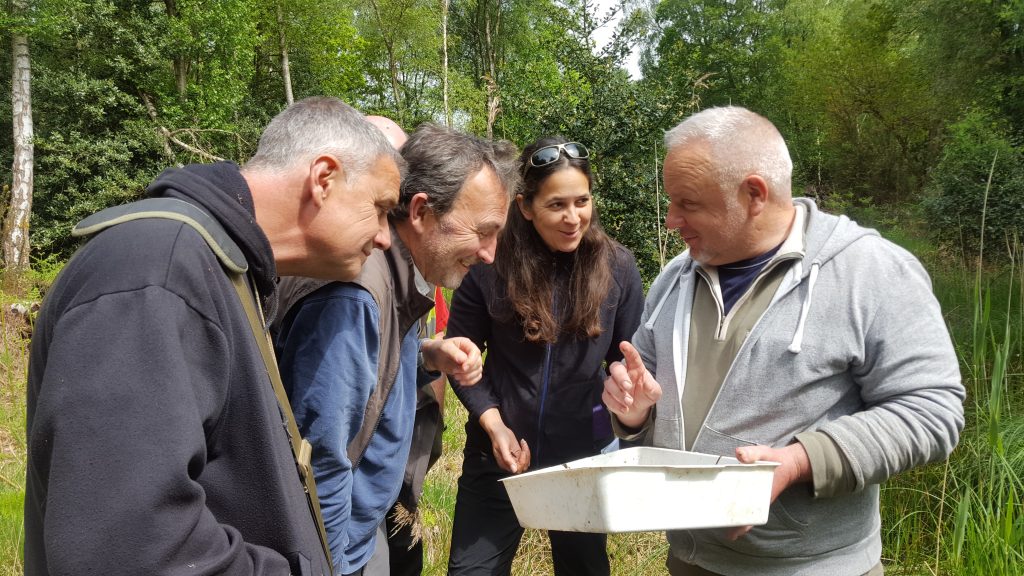
Freshwater Habitats Trust is one of the many partners in the Brecks Fen Edge and Rivers Heritage Lottery Fund project, led by Suffolk County Council and now in the development phase. As part of the development for this Landscape Partnership project, we undertook an Important Freshwater Area (IFA) analysis of the project area. An IFA takes all freshwater species records from all datasets available to bring together information in one map. This will then inform decisions about where best to deliver conservation projects. We also plan to use Citizen Science projects to connect local people with their freshwater heritage, everything from monitoring key species, using new technology to help with landscape assessment of water quality.
Help look after the Stow Bedon pingos and more
Would you like to help with species surveys or habitat management tasks? Get in touch with Pete Case on email to find out what’s involved. We’re also helping our friends at Amphibian and Reptile Conservation Trust find volunteers to help with amphibian monitoring in the Brecks.
Want to visit Stow Bedon Common?
Stow Bedon Common is a private site but is visible from the bridal way known as the Great Eastern Pingo Trail – park up at Thompson Common off the A1075 Thetford to Watton Road and walk along the bridal way for a glimpse of this magical place.
Find out more
- Discover Flagship Ponds, the finest wildlife pond sites in the country
- Read more about Important Freshwater Areas (IFAs)

